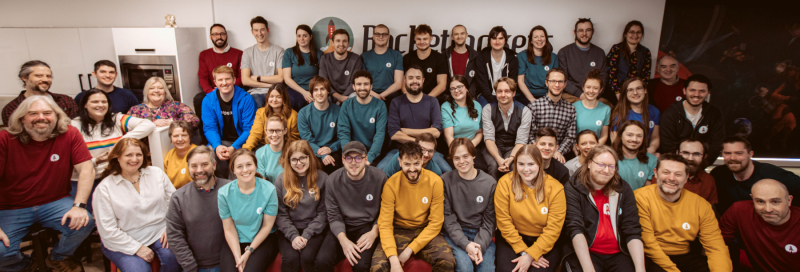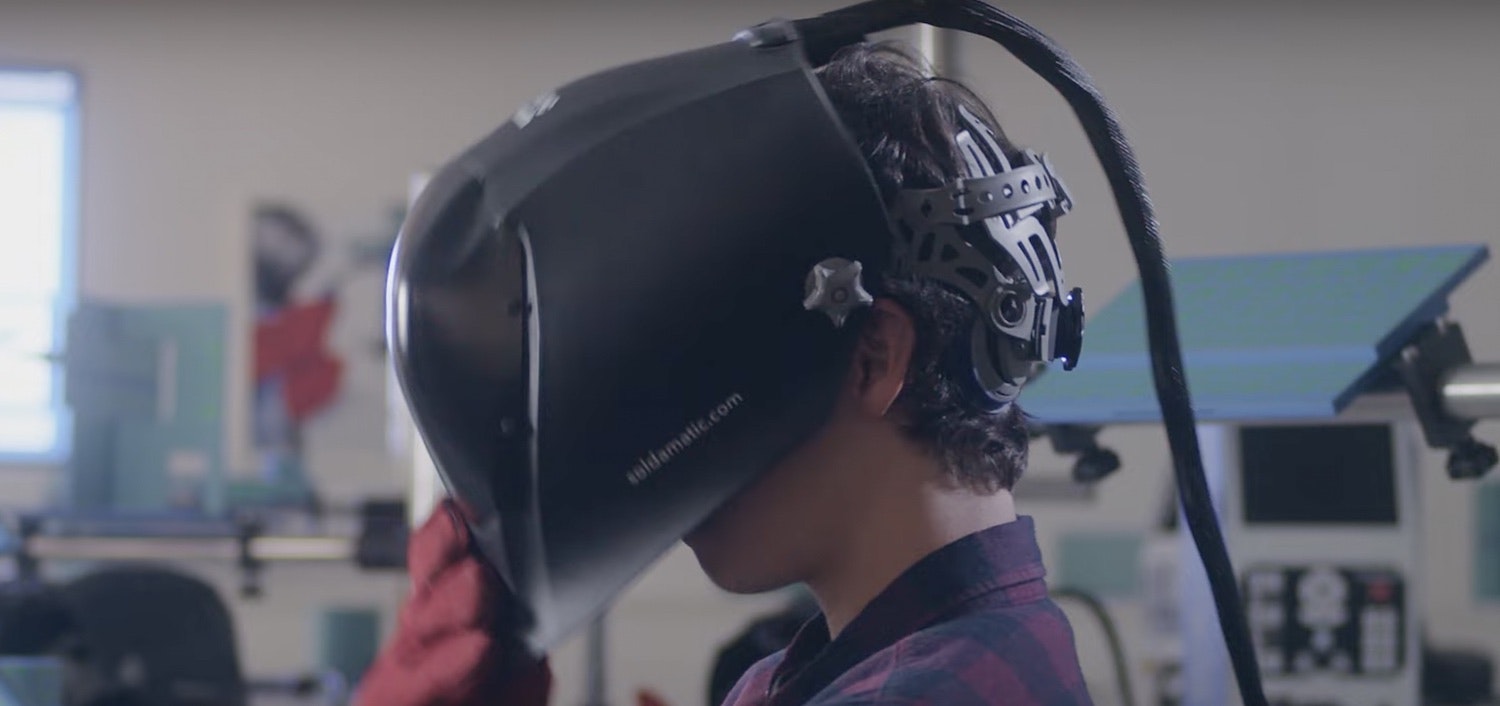Any working person will likely have been subjected to some mind numbing training course in the past, which might have involved some dull videos that haven’t been updated since the 1980s.
And where there’s something boring and uninspiring, there’s usually a startup. In this case, it’s London-based Moonhub, which thinks VR is the key to making training great (again?).
The startup offers VR-powered, fully immersive training courses — from delivery driver and security training to dementia care training — which it says simulate real-life scenarios and make the learning environment more compelling.
Moonhub has just raised $2.6m in a seed round led by proptech VC firm Pi Labs, with participation from Ada Ventures, 1818 Venture Capital and numerous angel investors.
It comes at a time when virtual reality learning and training is becoming a sector of interest for investors. Danish edtech platform Labster, which has built a virtual “eduverse” for science and medical students, raised $47m this month. Labster’s platform does not require a VR headset.
There’s also Varjo — a Finnish startup selling a virtual- and mixed-reality headset for use in situations like pilot and astronaut training courses — which raised $54m in its first 18 months of launching.
There have already been exits in the space as well. The UK’s Digital Surgery, whose ‘Touch Surgery’ technology allows surgeons to practice virtually before an operation, sold to medical technology giant Medtronic in 2020 for over $500m.
Clinging onto talent
Given the global tech talent shortage, more companies look for ingenious ways to quickly upskill employees to plug the skills gap and hang on to talent for longer. That means the opportunity for startups like Moonhub could be big.
Currently, Moonhub’s customers include Just Eat, French banking group BNP Paribas and UK private homecare provider Anglian Care.
“We’ve actually had companies talk about employee retention as one of their KPIs, as training and onboarding is one of the first impressions someone gets when joining a company,” says Moonhub cofounder Dami Hastrup.
He adds that VR could be an apt solution for upskilling workforces at pace, not least because VR training can be completed in a quarter of the time compared to traditional learning and development methods.
What does VR training look like?
When using Moonhub, employees walk through a 360-degree training scenario, where they have to spot and click on specific elements to score points in a five-layered scoring system. This is what the startup calls its "spot and jot" scoring system.
“Users are scored on how well they notice certain things in their environments,” explains Hastrup. The platform also provides quantitative performance data which managers can use to make “well-informed decisions” on how to better assist employees in their learning journeys.
Moonhub’s technology requires a VR headset for use. The Pico G2 4K headset is currently the provider of choice.
Traditional training methods are, when deployed at scale, costly, time-consuming and ineffective in engaging the learner.
“Traditional training methods (classroom and eLearning) are, when deployed at scale, costly, time-consuming and increasingly ineffective in engaging the learner, as well as under-delivering in post-training performance analysis,” says Hastrup.
PwC research found that VR is 64% more cost-effective than eLearning, and 200% more cost-effective than classroom-based learning and development.
Learners are also more likely to “retain the material and get better results when immersed in a virtual reality experience,” adds Hastrup, and he has the numbers to back it up.
Research shows that VR can boost learning retention by up to 75% and reduce skill fade by 52% — compared to 10% for traditional methods and 5% for eLearning.
Moonhub plans to use the funding to expand its team and "maximise the quality" of its training courses in various sectors, from healthcare to security, for both small startups and enterprises.


